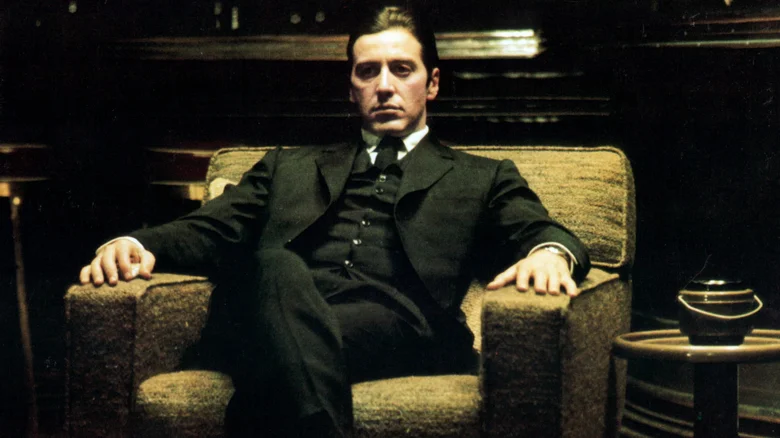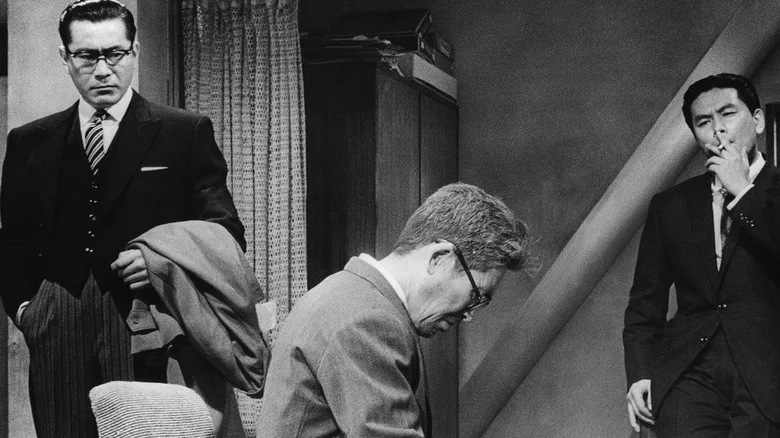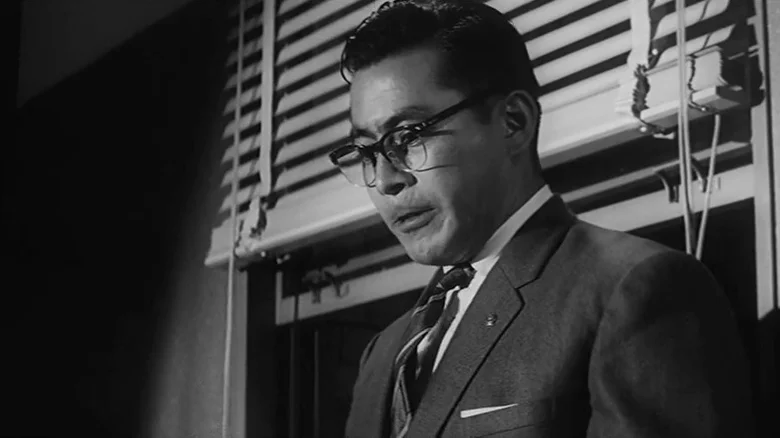KingsOfKings
♟️ GRANDMASTERS ♟️

"One of Hollywood's most frustrating recent news stories is that Francis Ford Coppola is having trouble finding distribution for his self-funded passion project, "Megalopolis" (via The Hollywood Reporter). In a just world, making "The Godfather" would grant Coppola a lifetime blank check, but that has never been the world we've lived in.
What you may not be aware of is one of Coppola's influences for his magnum opus. Like his friend "Star Wars" director George Lucas, Coppola looked to Japanese filmmaker Akira Kurosawa. While Lucas took after Kurosawa's Jidaigeki (historical) films (his favorite is "Seven Samurai," and it shows), Coppola looked to one of the director's contemporary-set films: "The Bad Sleep Well."
Released in 1960 and starring his go-to leading man Toshiro Mifune, the movie is one of Kurosawa's (comparatively) more obscure ones. It was especially overshadowed by "High and Low," the masterful kidnapping thriller that Kurosawa and Mifune released in 1963. Both movies are set in the world of corporate Japan (presented through crisp black-and-white coloring), but "High and Low" is the more remembered of the two (Spike Lee and Denzel Washington are remaking it).
In The Godfather, do The Bad Sleep Well?

"The Godfather" opens with an extended wedding sequence, introducing the Corleone family (in both meanings of family) and inspiring all the misquotes of Don Vito (Marlon Brando) supposedly saying, "You come to me on the day of my daughter's wedding." The opening of "The Bad Sleep Well" starts with a marital ceremony too; Coppola called this opening sequence, "as perfect as any film I've ever seen" and had it in mind when making "The Godfather."
The groom at the wedding is Kōichi Nishi (Mifune), but his heart isn't swelling with love for his bride, but hatred for his father-in-law Iwabuchi (Masayuki Mori). Nishi's father Furuya was an executive at the same company as Iwabuchi until he jumped (or was pushed) from a window after being caught in a scandal. Nishi's goal is to avenge his father's death upon Iwabuchi.*
Kurosawa adapted Shakespeare more than once: "Throne of Blood" is "Macbeth" and "Ran" is "King Lear," but both films' settings are moved from ancient Europe to feudal Japan. "The Bad Sleep Well" is close to "Hamlet" (particularly the driving motive of revenge for a murdered father). However, Kurosawa combined that play with one of the other greatest-ever revenge stories: Alexandre Dumas' "The Count of Monte Cristo." Note how Nishi conceals his identity to get close to his target, just like Edmond Dantès rebranded himself a count. There's a scene where Nishi and co. hold hostage Moriyama (Takashi Shimura), one of Iwabuchi's accomplices, and interrogate him by forcing him to pay obscene amounts of money for simple meals — pulled from a scene in "Monte Cristo" where the same fate befalls the devious Danglars.
As a ruthless antihero, Kōichi Nishi descends from Prince Hamlet and Edmond Dantès, while Michael Corleone (Al Pacino) of "The Godfather" descends from him.
Why you should still watch Akira Kurosawa

It should be obvious how influential Kurosawa is by now. Even if his impact on American filmmaking ended with "The Godfather" and "Star Wars" that preceding statement would be true, but it goes much further. "A Fistful of Dollars," the Western that made Clint Eastwood a movie star, was a remake of Kurosawa's "Yojimbo," just with an American cowboy instead of a samurai.**
As for Lucas and Coppola's peers, Steven Spielberg and Martin Scorsese are students of Kurosawa too (Scorsese even played Vincent van Gogh in Kurosawa's 1990 film "Dreams," a circular exchange of game recognizing game). Our best-living filmmakers weren't educated just by watching Old Hollywood titans like Alfred Hitchcock and John Ford, but the international masters too, from Kurosawa to Ingmar Bergman.
If you've ever felt trepidation about watching more international cinema, consider how many English-language filmmakers are inspired by it. Films from other countries aren't really any different from ones made stateside, especially since the latter have long been taking cues from the former.
If you like Westerns, samurai movies will probably be your speed too. Superhero movies? Give tokusatsu like "Ultraman" a shot. Quentin Tarantino loves Hong Kong filmmaker Wong Kar-wai (he even helped distribute "Chungking Express"); if you like his movies, Wong's should be on your radar too. Do you like Guillermo del Toro, director of "The Shape of Water" and "Pinocchio"? Then don't deprive yourself of his Spanish-language work, such as "The Devil's Backbone" and "Pan's Labyrinth" (which inspired some pretty great music, by the way).
To be clear, you shouldn't feel ashamed if you're new to international cinema (we all have to start somewhere), nor should you think of this like homework. Rather, you've got even more of a good thing than you may have realized."
The Japanese Noir That Inspired The Godfather Director Francis Ford Coppola - SlashFilm

 says: No idea is original
says: No idea is original